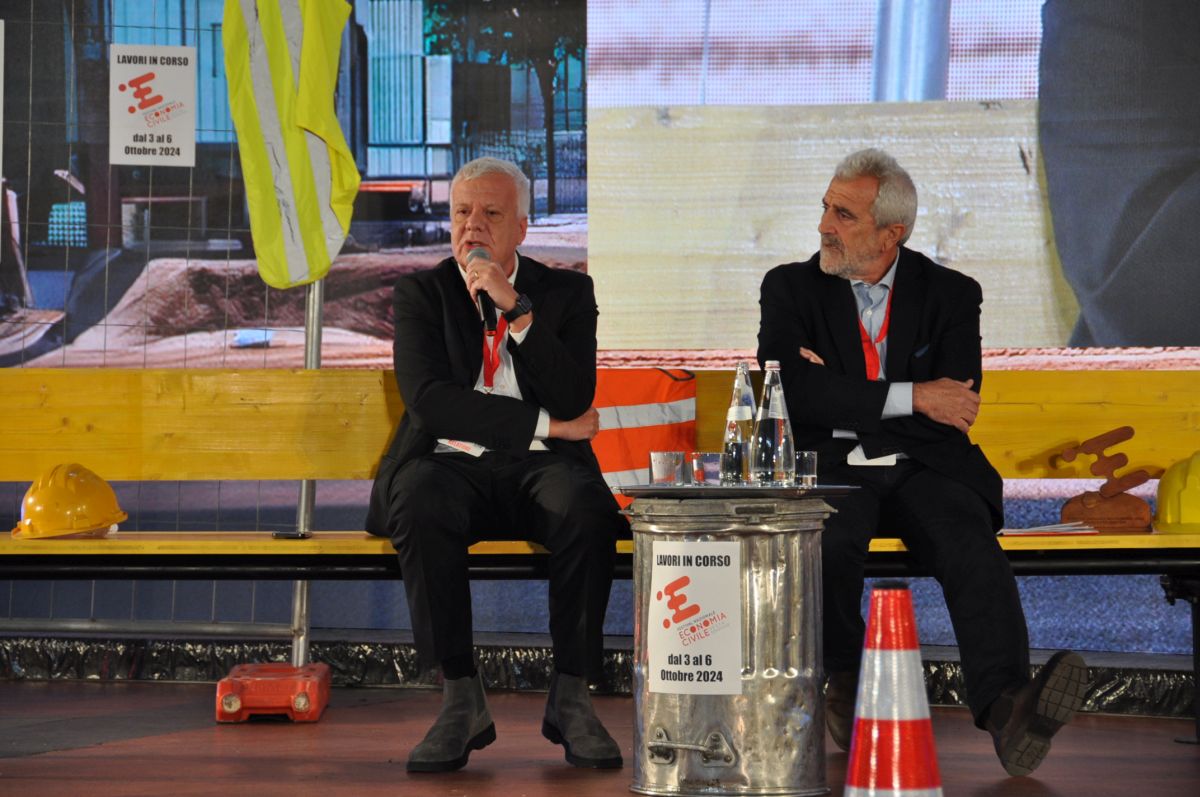FLORENCE (ITALPRESS) – We are inside the era of the commons. However, we do not yet have a proper economic theory of the commons and, more importantly, we have not yet developed the categories of thought that would allow us to address the real crux of the matter: how do we govern the commons? How can proper governance of the commons help us protect territories from the violence of climate change?
This was discussed during the 6th National Civil Economy Festival by Andrea Rinaldo (Professor of Hydraulic Construction at the University of Padua and director of the Ecohydrology Laboratory at the Federal Polytechnic School of Lausanne – EPFL), Gianluca Galletti (President Emil Banca and UCID) and Agostino Miozzo (Head of the Jubilee Reception Project).
For Rinaldo, “Every environmental and climatic projection we have available to us presents us with dramatic situations from every point of view, which we can also touch with our own hands: droughts alternating with unusual precipitation, sudden rises in temperatures, melting of ice caps with consequent rise in sea level. The first thought to overcome is the one that wants the planet as a commodity, each natural element as a product subjected to the law of the market and therefore assessable in economic terms.”
Galletti said, “Today more is invested in weapons than in the fight against climate change. The Paris Agreement is based on mitigation, on which very little has been done and is being done, and on adaptation, that is, on preparing the territory for the upheavals that are now inevitable and imminent. It is the role of policy to initiate such a process.”
Miozzo said, “Man no longer cares about nature. We see this when in an irresponsible way he does not care in any way about the resources he consumes, the little attention he pays to the maintenance of the environment. An overused term today, which we have heard billions and billions of times, is prevention. Prevention is disliked by politicians because it does not lead to winning elections, so what is missing is a real awareness of its true importance.”
The FNEC is promoted by Federcasse (the National Association of Cooperative Credit Banks, Rural Banks, Raiffeisen Banks) and Confcooperative, organized and designed with NeXt (New Economy For All), with contributions from Fondosviluppo, Assimoco, Assicooper, Coopersystem, Tuscany Federation of BCCs, Frecciarossa and the collaboration of SEC (School of Civil Economy) and MUS.E.
– photo press office National Civil Economy Festival –
(ITALPRESS)

